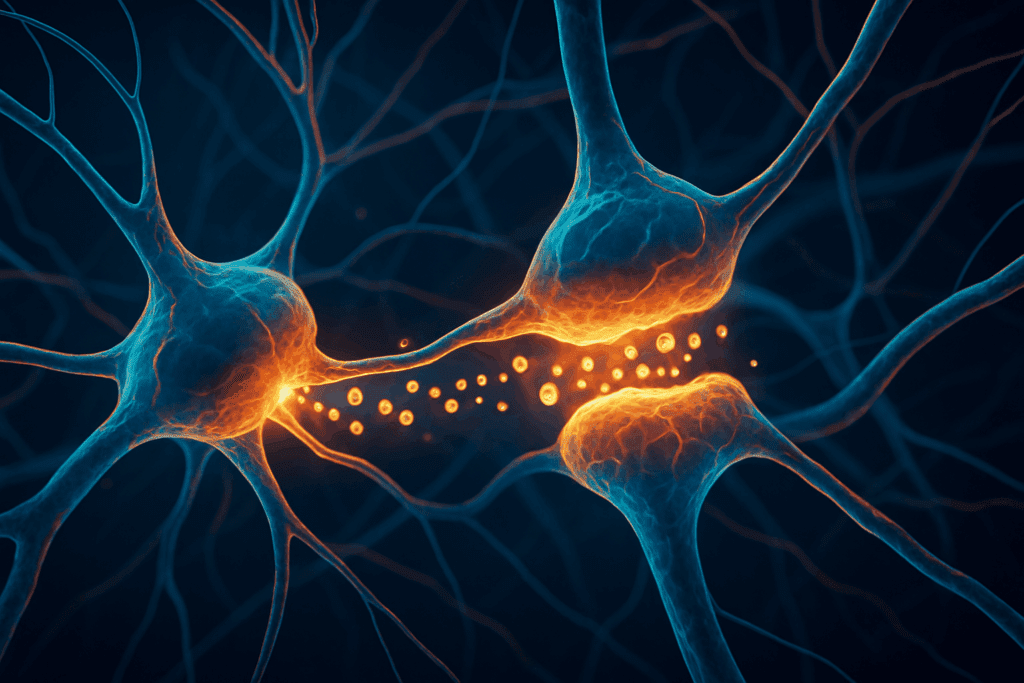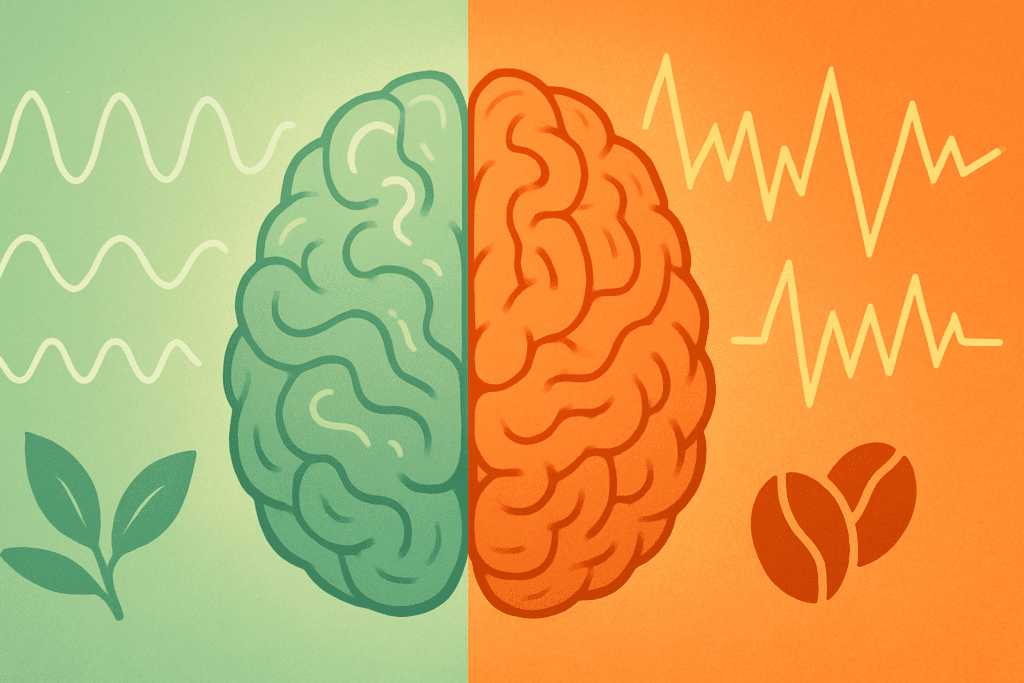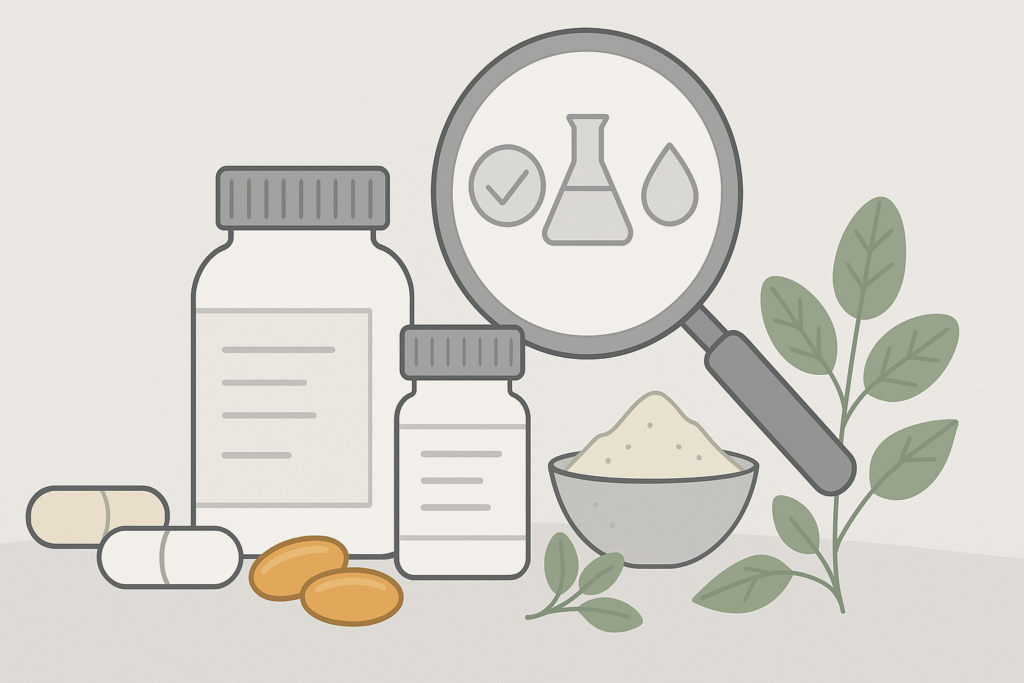Unlocking Academic Excellence: Why Brain Support Matters During Exams
In an increasingly competitive academic landscape, college students are under immense pressure to retain large volumes of information, think critically, and perform efficiently under time constraints. While foundational habits like sleep hygiene, nutrition, and time management remain non-negotiable, many students are turning to cognitive enhancers for an additional edge. This has led to a growing interest in evidence-based nootropic brain support supplements and memory pills for exams. These supplements promise not only enhanced focus and mental clarity but also support for cognitive stamina during extended study sessions.
You may also like: How to Choose the Best Brain Supplements for Adults: Science-Backed Ingredients That Support Focus, Memory, and Mental Clarity
Far from being just another trend, nootropic supplements have carved a niche for themselves within cognitive enhancement science. Students preparing for high-stakes examinations often find themselves wrestling with mental fatigue, declining attention spans, and difficulty recalling learned material. In such moments, having access to a reliable nootropic brain support supplement can make a noticeable difference. When used responsibly, these tools complement existing study strategies and fortify the brain’s natural capacities, allowing students to engage more deeply with their coursework and retain information with greater ease.
As interest in these supplements continues to surge, it’s crucial to differentiate between products backed by scientific research and those buoyed solely by marketing hype. This article aims to provide an in-depth, evidence-based exploration of some of the most promising nootropic and memory-support supplements available today. Through a combination of scientific insight and practical application, we’ll examine how these tools can empower students to sharpen focus and boost mental clarity—two essential components of academic success.

Defining Nootropics and Their Role in Academic Performance
To truly appreciate the value of memory pills for exams, one must first understand what qualifies as a nootropic. Originally coined by Romanian chemist Dr. Corneliu Giurgea in 1972, the term “nootropic” refers to substances that enhance cognitive function, particularly executive functions like memory, creativity, and motivation, without causing significant side effects. These supplements work through a variety of mechanisms: increasing cerebral blood flow, enhancing neurotransmitter activity, supporting mitochondrial function, and reducing oxidative stress.
In the context of academic performance, nootropic brain support supplements aim to optimize the very faculties students rely on most. This includes short-term and long-term memory consolidation, sustained attention, and mental resilience during challenging tasks. Unlike conventional stimulants that may cause jitteriness or dependence, high-quality nootropics tend to produce more balanced, sustainable results. When selecting supplements for exam preparation, students often seek products that deliver both acute cognitive enhancement and long-term neuroprotection.
The growing legitimacy of nootropics is underpinned by an expanding body of clinical research. Numerous ingredients commonly found in memory pills for exams have been the subject of randomized controlled trials, double-blind studies, and meta-analyses, offering reassurance that their cognitive benefits are not merely anecdotal. As we’ll explore throughout this article, many of these compounds offer multifaceted benefits that extend beyond simple memory enhancement, supporting a comprehensive model of brain health that includes mental clarity, focus, and decision-making under pressure.
Citicoline: A Clinically Supported Pillar of Cognitive Enhancement
Citicoline, also known as CDP-choline, has earned a prominent place among nootropic brain support supplements due to its robust impact on memory, attention, and overall brain health. Citicoline serves as a precursor for the synthesis of phosphatidylcholine, a key component of neuronal membranes, and also elevates levels of acetylcholine—a neurotransmitter crucial for learning and memory. This dual action not only facilitates neuroplasticity but also preserves the structural integrity of brain cells.
Multiple clinical trials have demonstrated that citicoline supplementation can enhance cognitive performance in both healthy individuals and those with cognitive impairments. In exam settings, students may benefit from citicoline’s ability to support mental energy, focus, and clarity, particularly when facing cognitively demanding tasks over prolonged periods. Its role in stimulating dopamine receptor densities also means it may enhance motivation—an often overlooked aspect of academic performance.
Moreover, citicoline has been shown to improve blood flow to the brain, enhancing oxygen and nutrient delivery during times of high cognitive demand. This makes it a highly valuable tool for students who may be studying for long hours with limited breaks. When included in a memory pill for exams, citicoline offers both immediate and lasting benefits, making it one of the most evidence-backed ingredients in the cognitive enhancement space.
Bacopa Monnieri: Ancient Wisdom Meets Modern Neuroscience
Derived from a plant long revered in Ayurvedic medicine, Bacopa monnieri has found a modern resurgence in Western nootropic formulations. Its active compounds, known as bacosides, are believed to enhance synaptic communication and protect neurons from oxidative damage. What makes Bacopa particularly compelling for exam preparation is its proven ability to enhance memory consolidation and reduce anxiety—two factors that can dramatically influence academic performance.
Numerous double-blind, placebo-controlled studies have confirmed Bacopa’s efficacy in improving recall speed, information retention, and verbal learning. These benefits are typically observed after consistent use over several weeks, making Bacopa ideal for students who are planning their exam preparation well in advance. The supplement’s adaptogenic properties also help to mitigate stress-induced cognitive decline, a common issue during finals week.
Unlike many synthetic stimulants, Bacopa monnieri works gradually and gently, with cognitive benefits that compound over time. Its neuroprotective effects make it a strong candidate for those seeking not just short-term academic boosts but also long-term cognitive wellness. When incorporated into a nootropic brain support supplement, Bacopa provides a well-rounded foundation for intellectual endurance and composure under pressure.

Rhodiola Rosea: Cognitive Resilience Under Stress
Rhodiola rosea is a potent adaptogen known for its capacity to enhance physical endurance, emotional stability, and cognitive function. This herb, native to the cold, mountainous regions of Europe and Asia, has been studied for its ability to modulate stress responses by balancing levels of cortisol and serotonin. For students facing the dual burdens of academic rigor and emotional strain, Rhodiola can be an invaluable ally.
Clinical research has shown that Rhodiola can significantly improve mental performance under fatigue, particularly in tasks requiring prolonged attention and memory recall. By supporting mitochondrial energy production and reducing oxidative stress, Rhodiola enhances both the speed and accuracy of information processing. It also offers mood-stabilizing effects that may alleviate anxiety-related performance blocks.
Students often encounter a sharp decline in productivity after a few hours of intense concentration. Rhodiola’s role in mitigating this cognitive fatigue is one of its most valuable attributes. Within the context of memory pills for exams, Rhodiola contributes a layer of emotional resilience and sustained focus that allows students to push through the final hours of exam preparation without cognitive burnout.
L-Theanine and Caffeine: A Synergistic Duo for Calm Focus
One of the most popular and scientifically validated combinations in the world of nootropic brain support supplements is that of L-theanine and caffeine. Found naturally in green tea, L-theanine promotes alpha brainwave activity, associated with a state of “calm alertness.” When paired with caffeine—a stimulant known to enhance vigilance and reaction time—the result is a balanced state of mental clarity without the typical jitteriness or crash.
The synergistic effect of these two compounds has been well-documented in both animal and human studies. Research shows that L-theanine can smooth out the overstimulation caused by caffeine, resulting in a more focused and sustained attention span. This makes it ideal for extended study sessions where both wakefulness and composure are needed.
Memory pills for exams that feature this pairing allow students to experience heightened alertness while maintaining emotional equilibrium. The combination is particularly useful for individuals sensitive to caffeine, providing all the cognitive perks without compromising tranquility. For tasks that require deep focus, rapid learning, and emotional regulation, this duo delivers dependable, science-backed results.

Lion’s Mane Mushroom: Neurogenesis for Long-Term Learning
Lion’s Mane mushroom (Hericium erinaceus) is gaining popularity as a nootropic that not only boosts immediate cognitive function but also promotes long-term brain health through neurogenesis—the growth of new neurons. Its active compounds, hericenones and erinacines, stimulate the production of Nerve Growth Factor (NGF), which plays a pivotal role in the survival and growth of brain cells.
Studies indicate that Lion’s Mane can improve memory, focus, and concentration, especially when taken over several weeks. For students, this means enhanced learning capacity, faster information retrieval, and better integration of complex material. Unlike synthetic stimulants, which provide temporary boosts, Lion’s Mane builds a cognitive foundation that supports both current academic performance and future intellectual resilience.
This natural compound is especially useful during intensive study periods leading up to exams, where mental stamina and adaptability are critical. As a component of a nootropic brain support supplement, Lion’s Mane offers a unique advantage by fostering the biological conditions necessary for sustained cognitive enhancement. It does not just sharpen the mind; it enriches its structural capacity.
Omega-3 Fatty Acids: Brain Fuel for Memory and Focus
While often associated with heart health, omega-3 fatty acids are equally critical for optimal brain function. Docosahexaenoic acid (DHA), one of the primary omega-3s, is a structural component of brain cell membranes and plays a crucial role in synaptic plasticity, neuroinflammation regulation, and neurotransmitter function. These properties make omega-3s a foundational element of any memory pill for exams.
Research has shown that omega-3 supplementation can enhance working memory, reaction time, and mood stability. For students, this translates into more effective studying, improved problem-solving, and better emotional regulation during stressful academic periods. Omega-3s have also been linked to decreased symptoms of test anxiety, making them a holistic tool for exam preparation.
Unlike some other nootropics that require short-term dosing for acute effects, omega-3s are most effective when consumed regularly over time. Their benefits accumulate, supporting not just academic outcomes but also overall mental wellness. When incorporated into a nootropic brain support supplement, omega-3s offer a blend of cognitive sharpness and emotional balance that is hard to match.
Ginkgo Biloba: Enhancing Cerebral Blood Flow and Recall
Ginkgo biloba is one of the oldest and most extensively researched botanical nootropics. Known for its vasodilatory effects, Ginkgo increases blood flow to the brain, thereby enhancing oxygen and nutrient delivery. This supports sharper focus, quicker recall, and reduced mental fatigue—benefits that are especially valuable during high-stakes academic evaluations.
Clinical studies have demonstrated Ginkgo’s efficacy in improving memory performance, especially in tasks involving working memory and executive function. It is also known for its antioxidant properties, which protect neurons from the damaging effects of oxidative stress—a common byproduct of mental exertion.
Memory pills for exams that include Ginkgo offer students a strategic advantage by boosting mental agility and recall speed without overstimulating the nervous system. Its benefits are particularly pronounced when used consistently, making it an excellent supplement for students beginning their exam preparations weeks or months in advance.

Making an Informed Choice: Tips for Selecting Quality Supplements
Navigating the supplement aisle can be overwhelming, given the sheer number of products claiming to enhance memory and focus. However, not all nootropic brain support supplements are created equal. One of the most important considerations is ingredient transparency—reputable brands clearly list dosages, active compounds, and supporting research. Formulas that rely on proprietary blends without disclosing specific quantities should be approached with caution.
Additionally, third-party testing and certifications for purity and potency are critical markers of a supplement’s reliability. Look for products that are GMP-certified and tested for heavy metals, contaminants, and filler content. Bioavailability also matters; ingredients like curcumin or bacopa are far more effective when paired with compounds that enhance their absorption, such as black pepper extract.
Ultimately, the best memory pills for exams are those that integrate science-backed ingredients in thoughtfully designed formulations. Combining complementary compounds—like adaptogens with stimulants or neurogenesis agents with antioxidants—can result in synergistic benefits that amplify both immediate focus and long-term brain health. Investing in quality over marketing claims ensures that students are genuinely enhancing their cognitive toolkit rather than chasing placebo effects.
Frequently Asked Questions: Advanced Insights into Nootropic Brain Support Supplements and Memory Pills for Exams
1. How can nootropic brain support supplements influence test-day performance under pressure?
Nootropic brain support supplements can do more than just sharpen memory; they also influence stress resilience and cognitive flexibility. On exam day, mental clarity is only part of the equation—your ability to manage anxiety, retrieve information quickly, and adapt to unexpected questions is equally critical. Some advanced nootropics contain adaptogenic herbs like Rhodiola rosea or L-theanine, which modulate the stress response system and support alpha wave activity in the brain. This combination promotes a calm, alert state that improves performance under pressure. While memory pills for exams often emphasize recall, a quality nootropic stack should enhance the entire exam experience, from mindset to mental stamina.

2. Are there long-term cognitive benefits to using memory pills for exams?
Yes, but only when the supplements are part of a broader cognitive strategy. Many students view memory pills for exams as short-term aids, yet compounds like phosphatidylserine, bacopa monnieri, and lion’s mane mushroom may promote neurogenesis and synaptic plasticity over time. Long-term use under professional guidance can support brain health beyond academic settings, potentially improving decision-making and emotional regulation. However, it’s crucial to cycle these supplements and combine them with lifestyle habits like sleep hygiene and learning reinforcement. A nootropic brain support supplement should never be a crutch but rather a catalyst for sustainable cognitive development.
3. What mistakes do people commonly make when taking memory pills for exams?
One major mistake is relying on a single high-dose supplement right before a test, expecting instant results. The truth is, many ingredients in memory pills for exams, like bacopa or ginkgo biloba, need consistent use over weeks to achieve measurable effects. Another common error is neglecting individual biology—what works for one person might cause fog or overstimulation in another. Using a nootropic brain support supplement without tracking cognitive response or consulting a health professional can backfire. It’s important to treat brain enhancement with the same caution and personalization as physical training or diet planning.
4. How do nootropic brain support supplements interact with diet and hydration?
Cognitive supplements are significantly influenced by your nutritional baseline. For instance, fat-soluble compounds like curcumin or CoQ10 require dietary fats for optimal absorption, while B-vitamins in memory pills for exams may be less effective if you’re chronically dehydrated. Even mild dehydration can impair focus, making it harder for supplements to deliver noticeable benefits. Combining nootropic brain support supplements with a brain-friendly diet—rich in omega-3s, polyphenols, and choline—maximizes their impact. Timing is also crucial: taking them with balanced meals rather than on an empty stomach reduces side effects and improves bioavailability.
5. Can memory pills for exams enhance creativity or just memory recall?
Interestingly, some memory pills for exams may offer unexpected boosts in creativity, especially when they include cholinergic compounds or adaptogens. Substances like citicoline, uridine monophosphate, and L-tyrosine can increase mental fluidity, which is essential for tasks requiring out-of-the-box thinking. A well-formulated nootropic brain support supplement balances memory retention with divergent thinking—a combination that enhances both structured learning and spontaneous idea generation. Students in fields that demand both technical mastery and innovation (like engineering or design) can especially benefit from this dual approach. Creativity, after all, is often just well-organized memory applied in novel ways.
6. What are the signs that a nootropic brain support supplement is working effectively?
Effective supplementation goes beyond “feeling smarter.” Improved mental endurance, reduced brain fog, better sleep quality, and fewer attention lapses are key signs of progress. If memory pills for exams are working, you may also notice smoother transitions between cognitive tasks and greater mental resilience after long study sessions. Tracking your productivity, task-switching ability, and memory accuracy over a few weeks is a more reliable gauge than relying solely on subjective feelings. Look for subtle but consistent improvements in how you think, plan, and recall—not just how energetic you feel.
7. Is it safe to combine multiple memory pills for exams in a “stack”?
Stacking supplements can be powerful, but it must be done strategically. Combining racetams with choline sources, or adaptogens with amino acids, can yield synergistic effects—but also introduces the risk of overstimulation, insomnia, or neurotransmitter imbalance. A nootropic brain support supplement stack should be tailored to your goals (e.g., memory vs. focus vs. calm) and your physiology. Ideally, start with single ingredients to test tolerance, then layer based on observed outcomes. Always consult with a healthcare provider or functional medicine expert before creating a complex stack, especially if you’re taking other medications.
8. How do nootropic brain support supplements affect sleep quality?
Many people mistakenly assume all cognitive enhancers disrupt sleep, but this depends on the formulation. While stimulatory compounds like caffeine or modafinil analogs can impair REM sleep, others—such as magnesium L-threonate, ashwagandha, or L-theanine—actually support sleep onset and depth. High-quality memory pills for exams often include calming agents to counterbalance stimulating effects, enabling you to study longer without compromising recovery. Sleep is when memory consolidation occurs, so sacrificing it undermines the very goal of using nootropics. Choose a nootropic brain support supplement with your circadian rhythm in mind.
9. What cutting-edge innovations are emerging in nootropic brain support supplements?
One exciting development is the use of nano-liposomal delivery systems, which improve the bioavailability of fat-soluble nutrients like curcumin or vitamin D3. Some next-gen memory pills for exams are also integrating mitochondrial enhancers like PQQ or NAD+ precursors to support cellular energy at the neuronal level. Personalized nootropic formulations based on DNA testing and microbiome data are on the horizon, allowing for customized blends based on cognitive genotype. Additionally, AI-driven apps now track real-time cognitive performance and recommend nootropic adjustments. These innovations move the field from generic pills to precision neuroenhancement.
10. What ethical considerations come with using memory pills for exams?
The use of nootropics in academic settings raises questions about fairness, accessibility, and informed consent. If memory pills for exams become normalized, students without access could be at a disadvantage, creating pressure to “enhance” just to keep up. There’s also the risk of dependency—psychological or physiological—especially when used without proper education or intention. That said, a responsibly used nootropic brain support supplement can level the playing field for those with mild cognitive impairments or attention challenges. The key is transparency, balance, and awareness of long-term implications, both personally and societally.

Final Thoughts: Why Choosing the Right Memory Pills for Exams Matters
Exam periods are a crucible of mental performance, requiring not just knowledge but clarity, stamina, and composure. The right nootropic brain support supplement can provide a strategic advantage, helping students overcome fatigue, sharpen focus, and retain complex material more effectively. By choosing memory pills for exams that are supported by scientific research and formulated with high-quality ingredients, students can enhance both their immediate academic performance and their long-term cognitive resilience.
Incorporating these supplements into a broader lifestyle that prioritizes sleep, nutrition, and stress management creates a holistic foundation for academic excellence. Nootropics are not magic pills, but when used thoughtfully, they serve as powerful tools in the student’s arsenal. As the science of cognitive enhancement continues to evolve, students who stay informed and selective in their choices will be best positioned to succeed—both in the exam room and beyond.
Further Reading:
The 10 Best Nootropic Supplements to Boost Brain Power
Focus pills: 10 nootropic supplements to boost focus and memory


